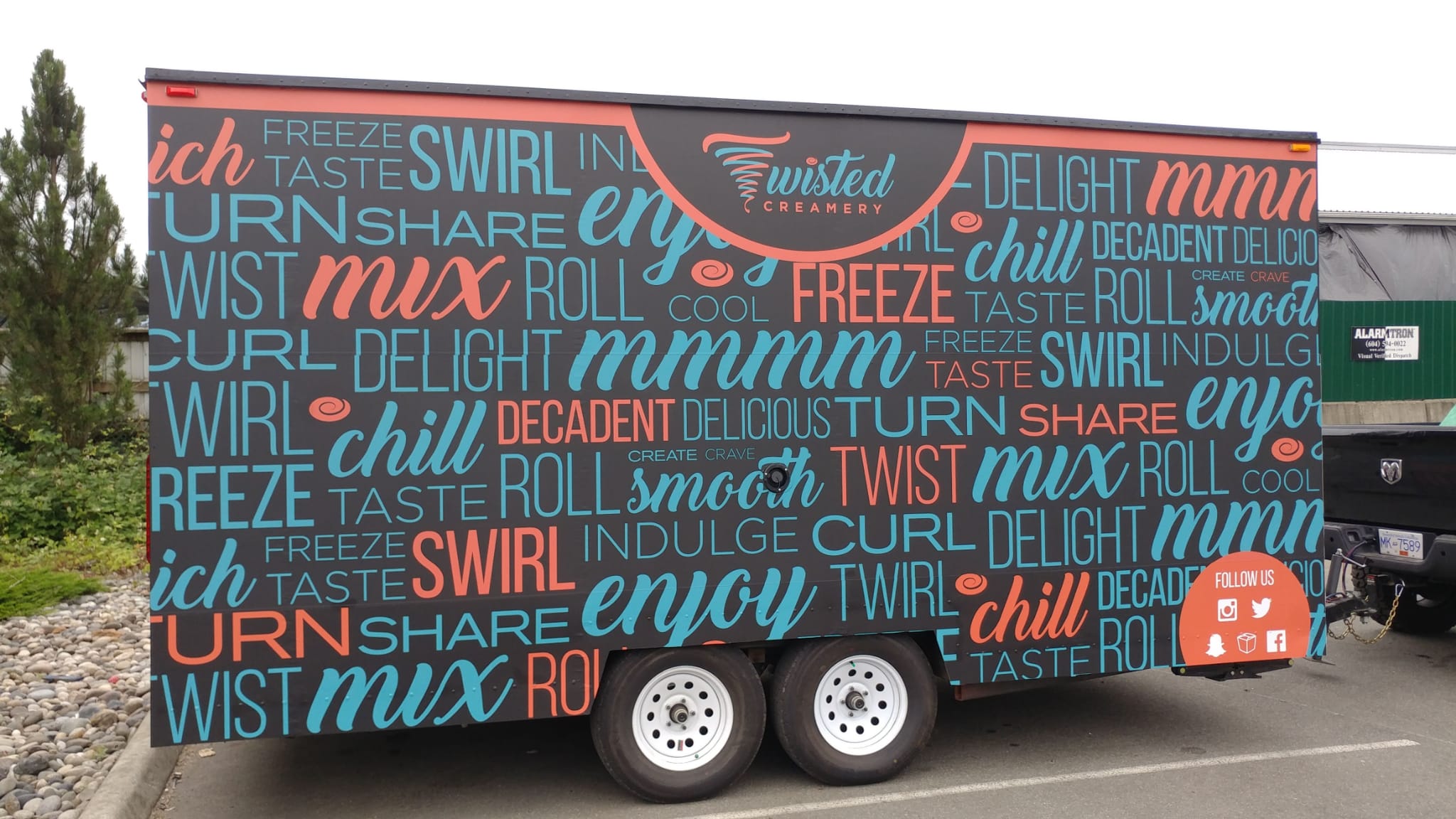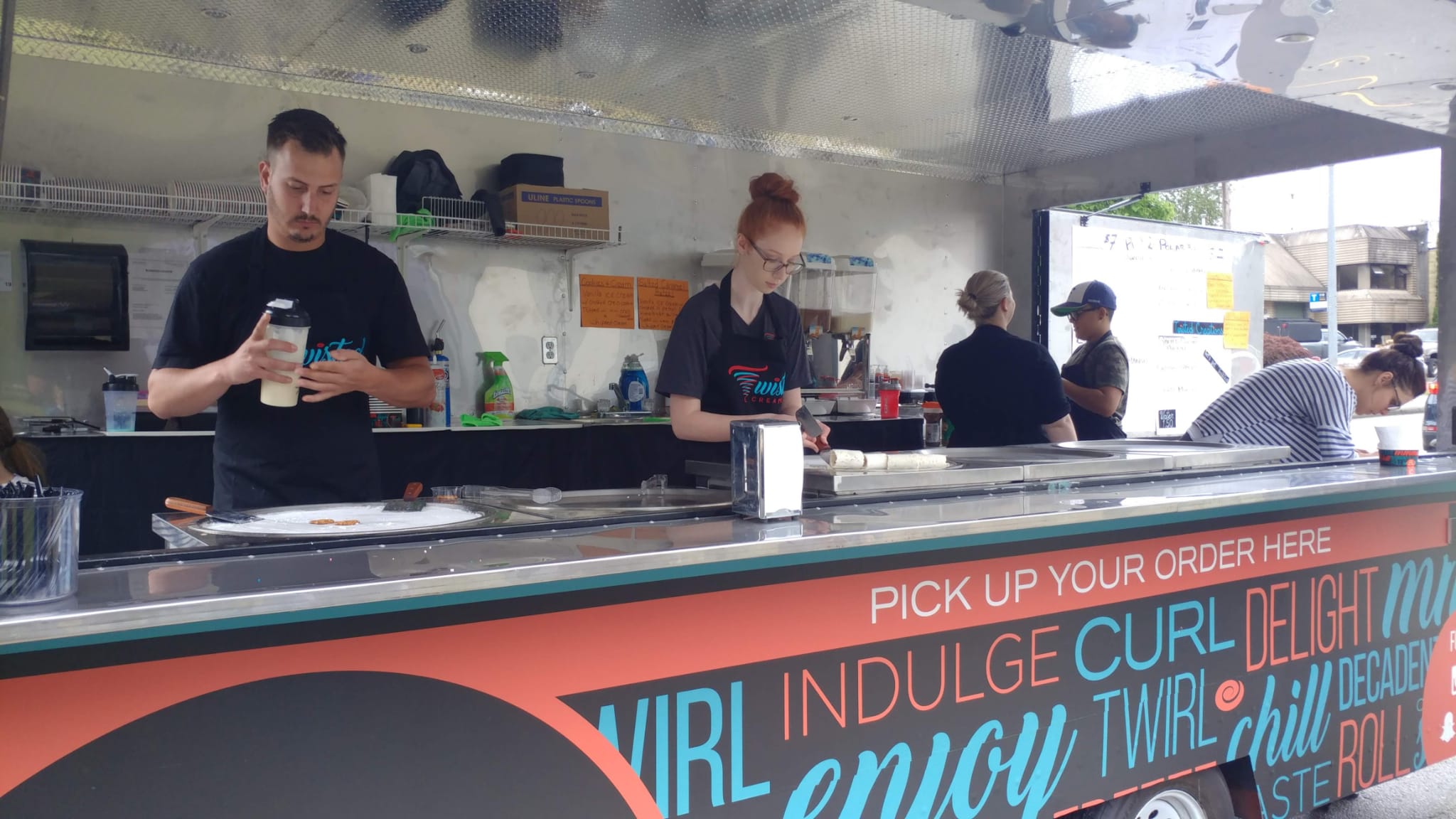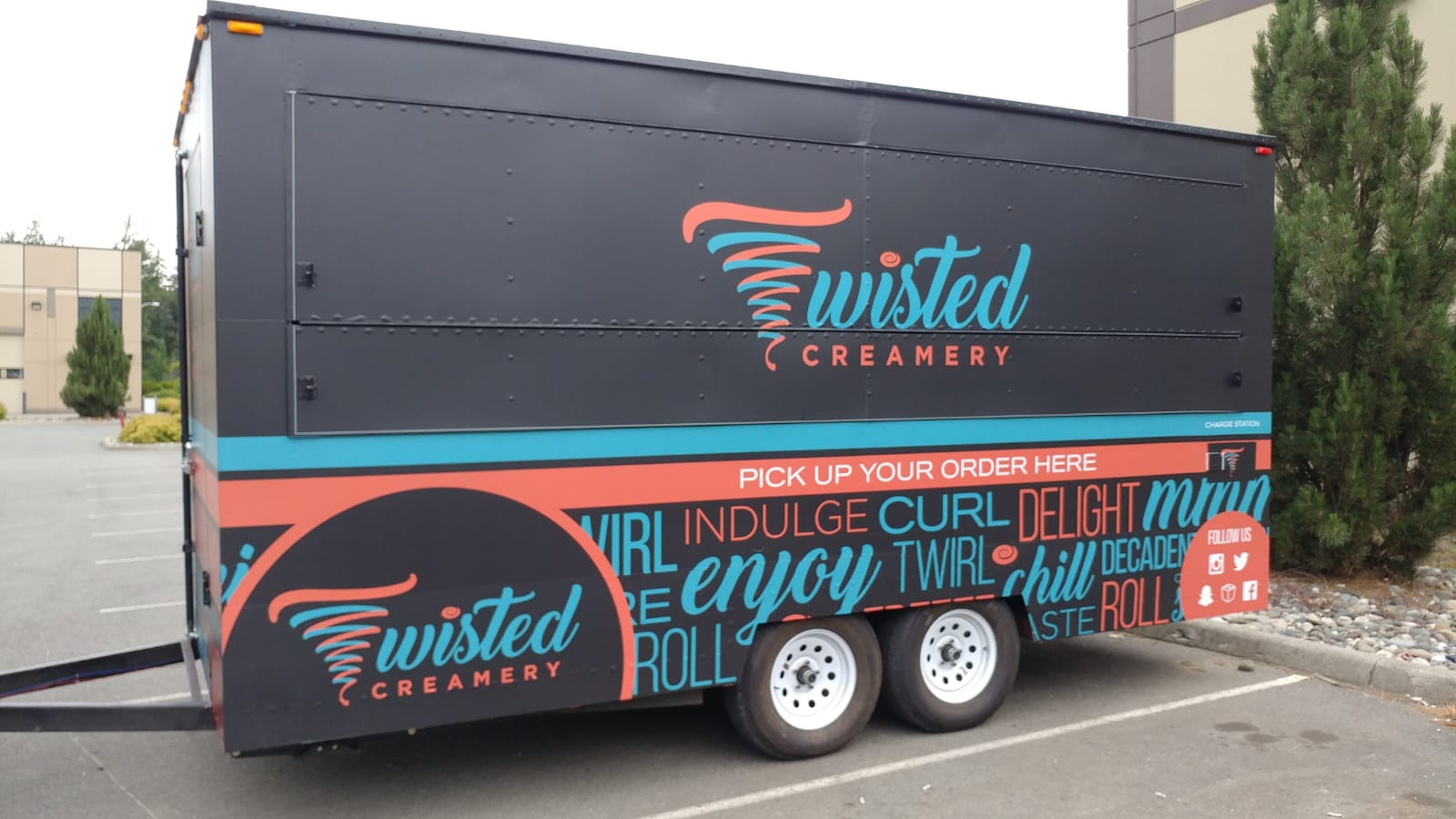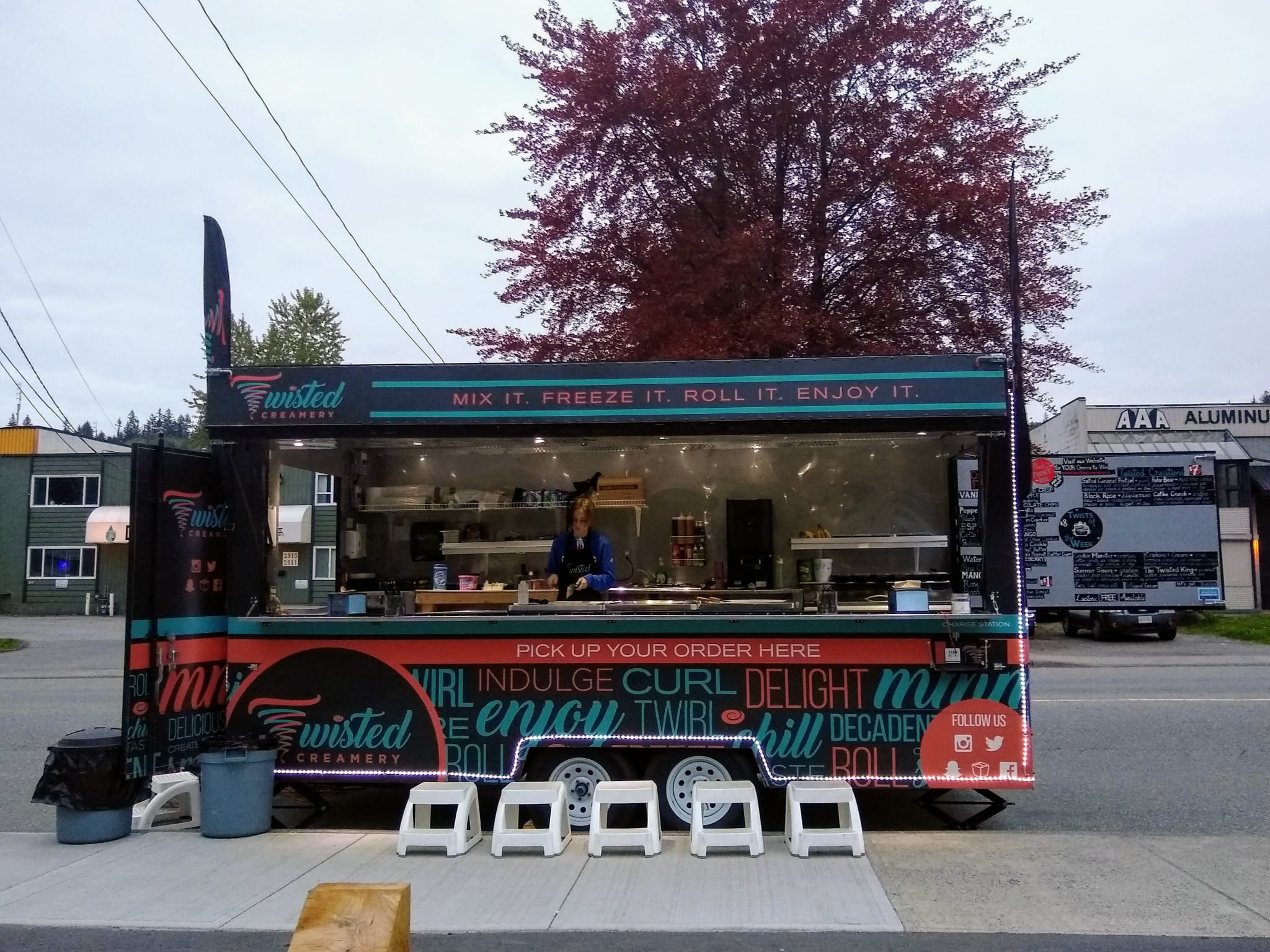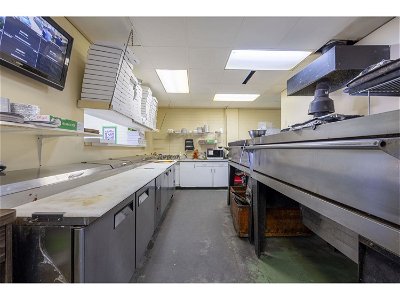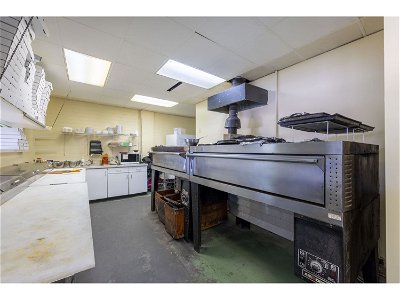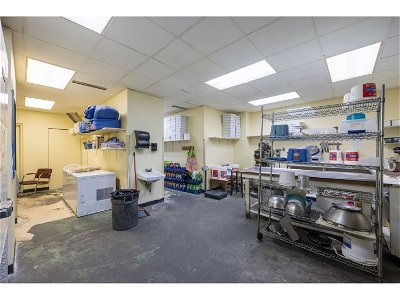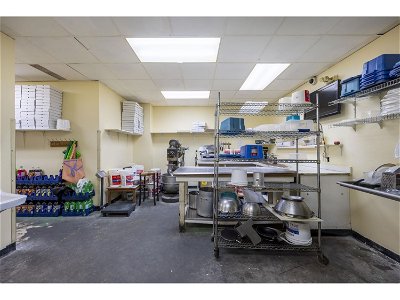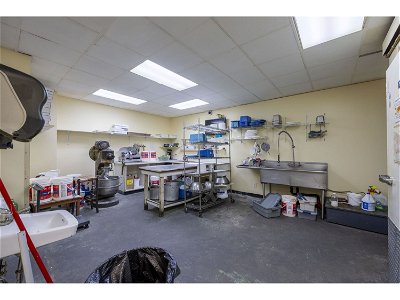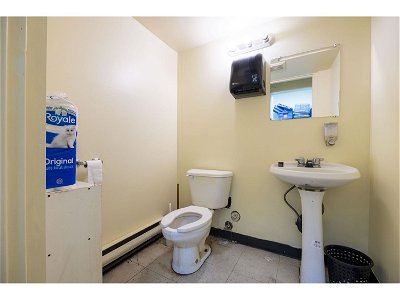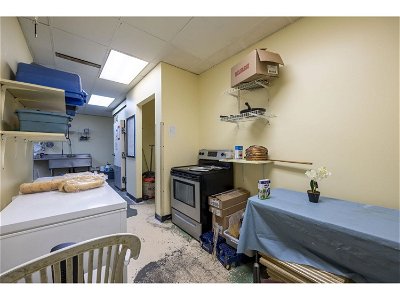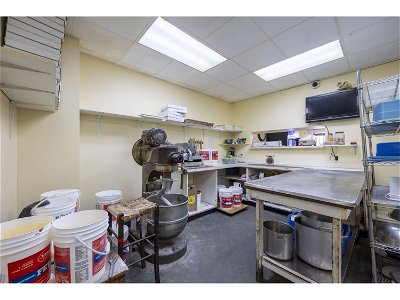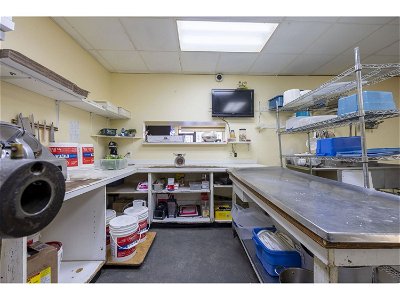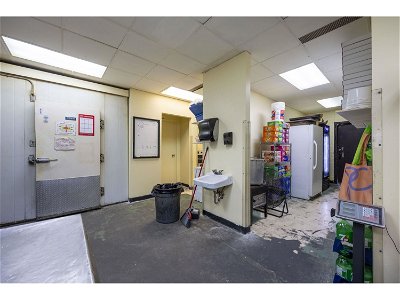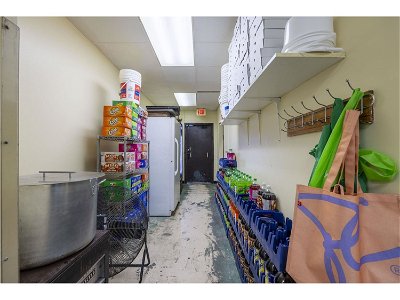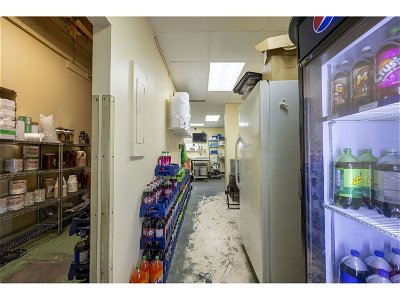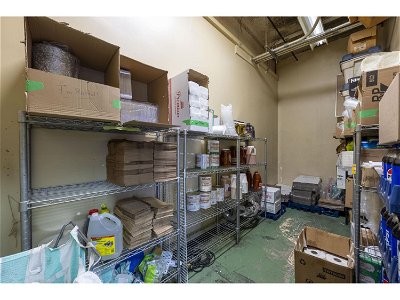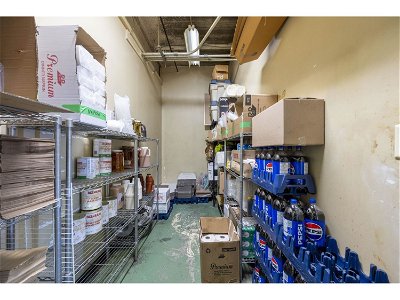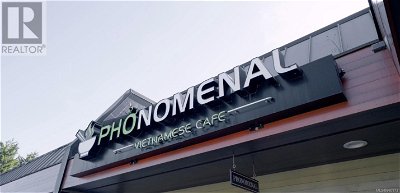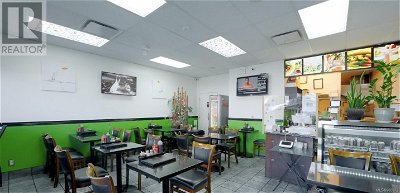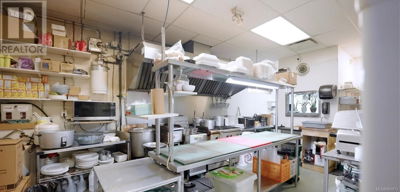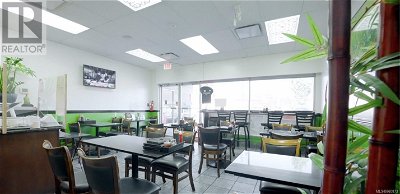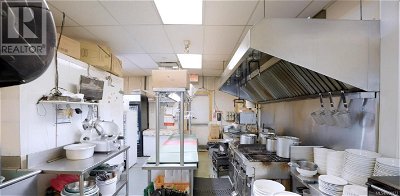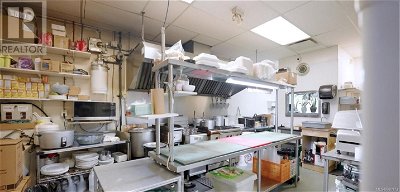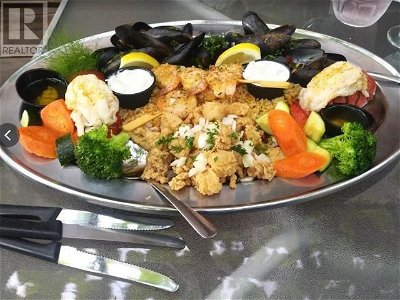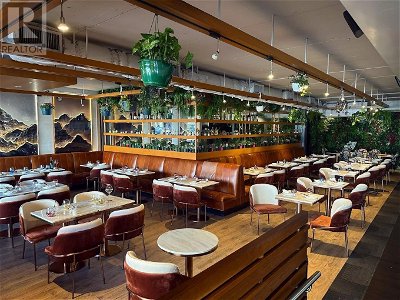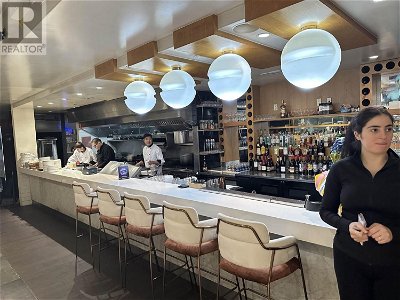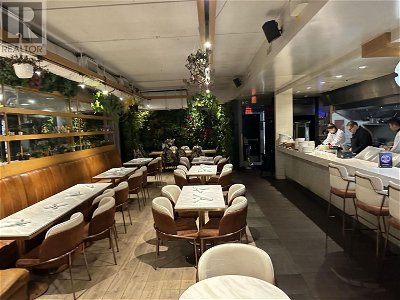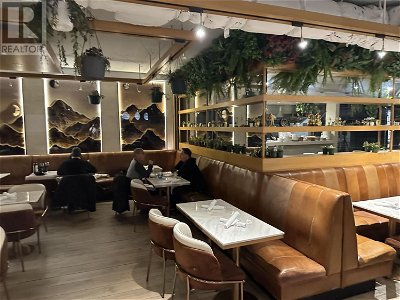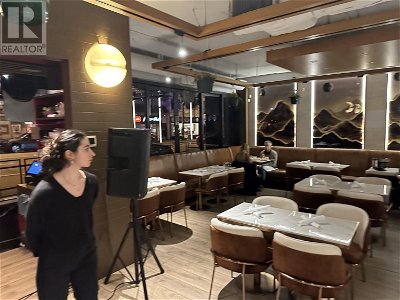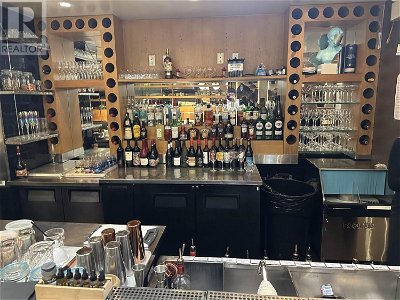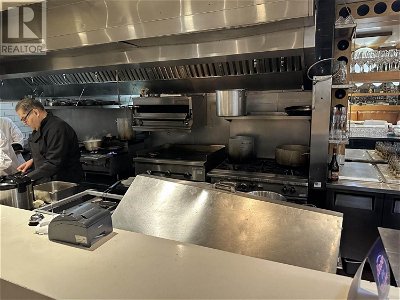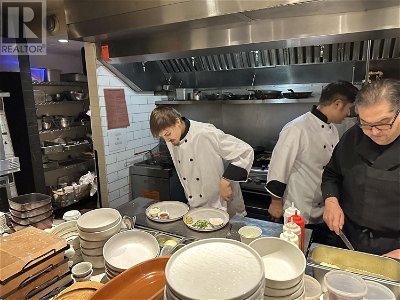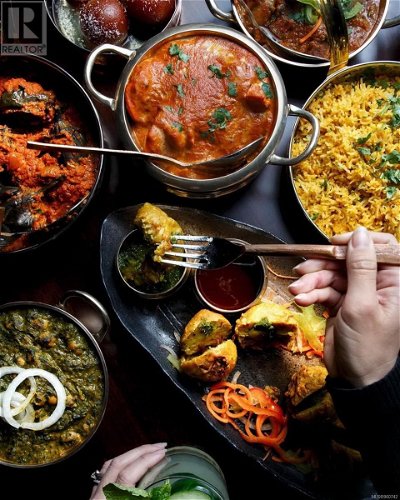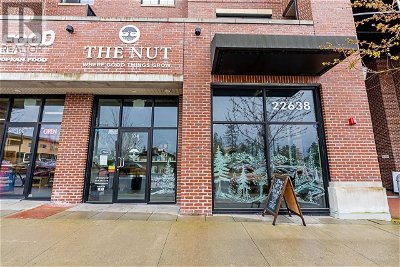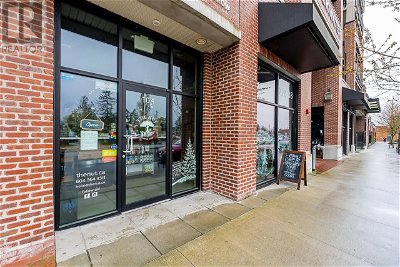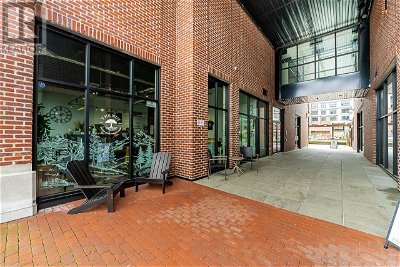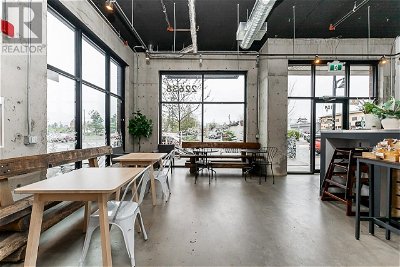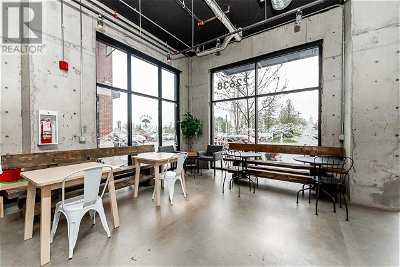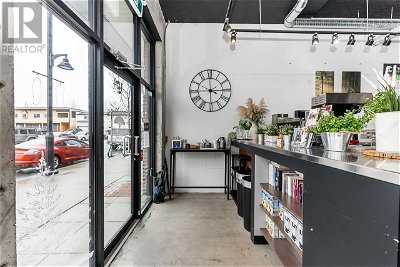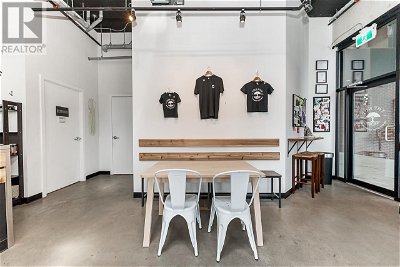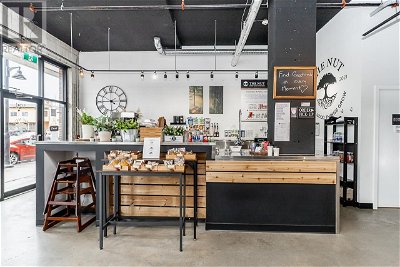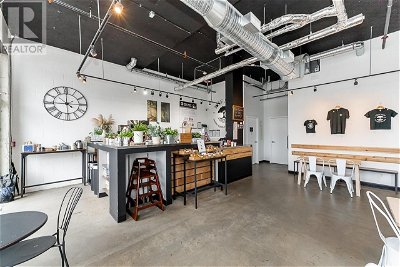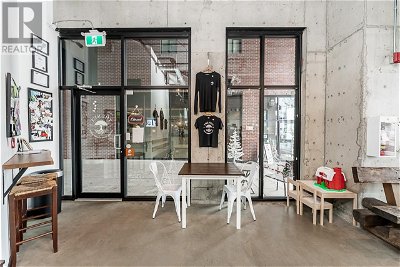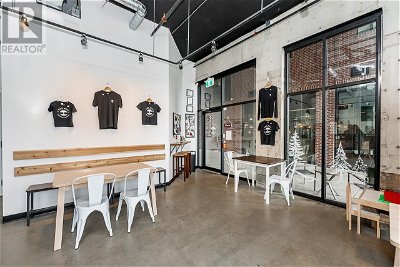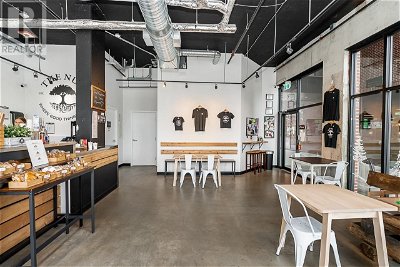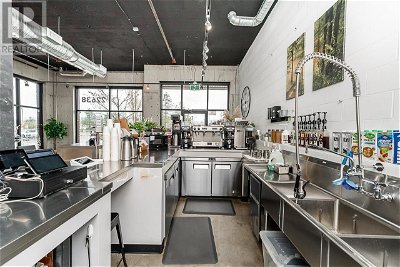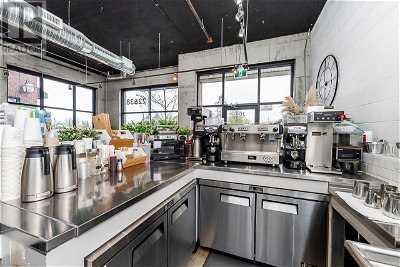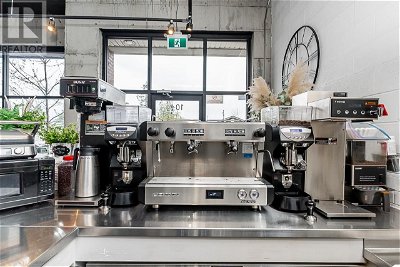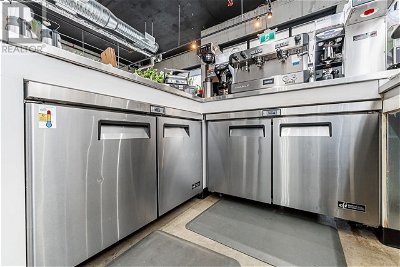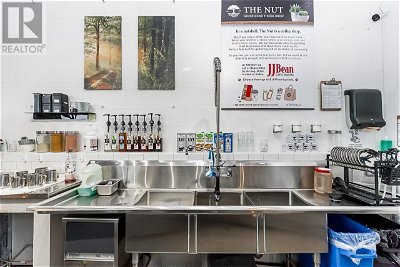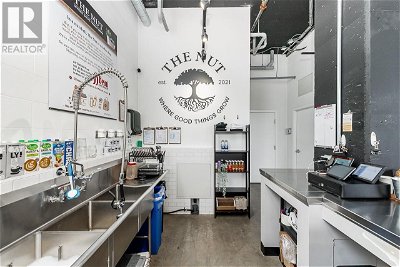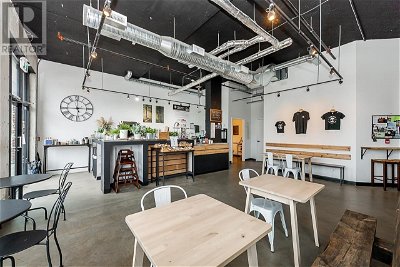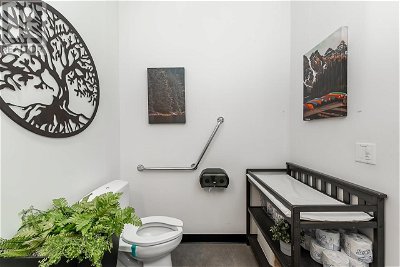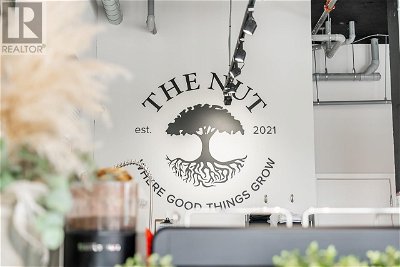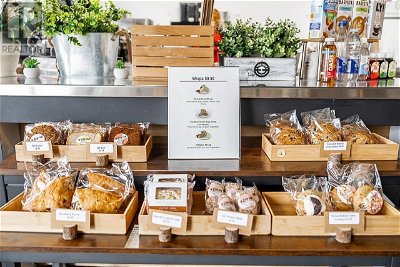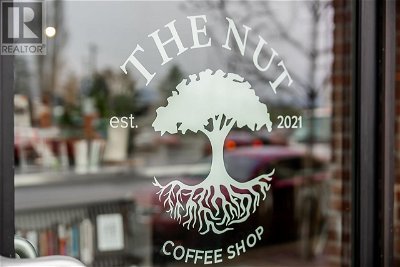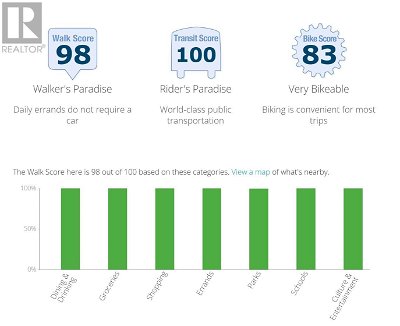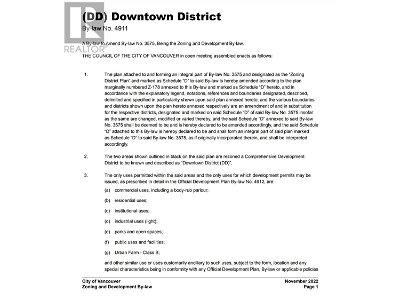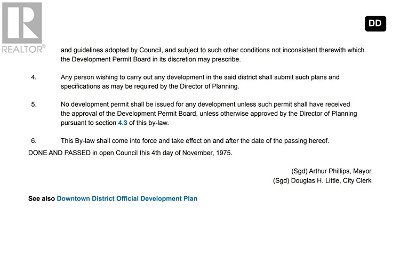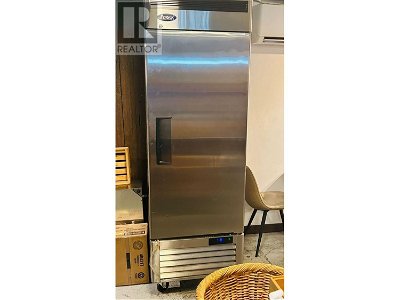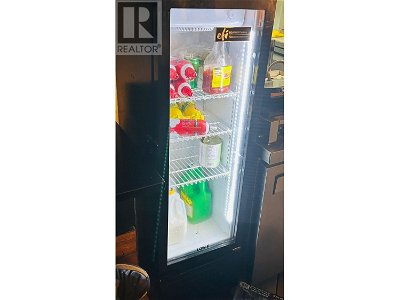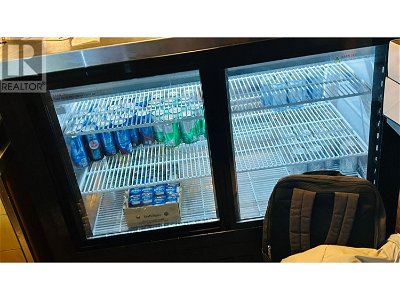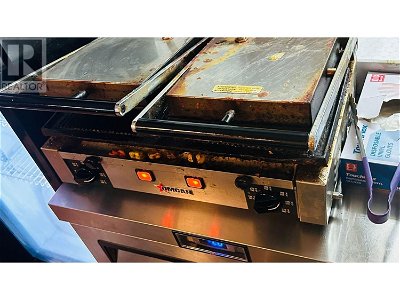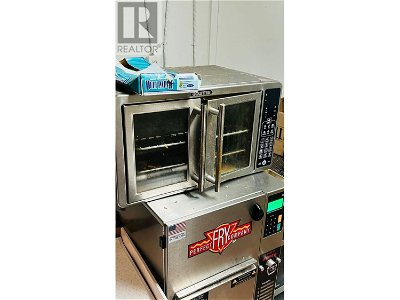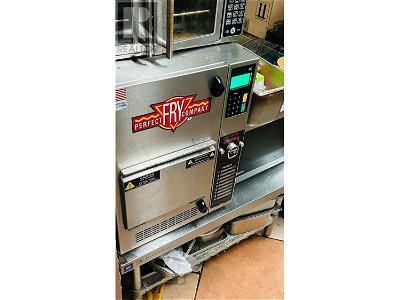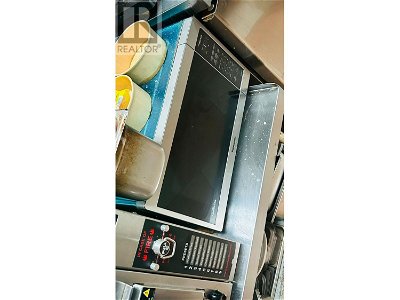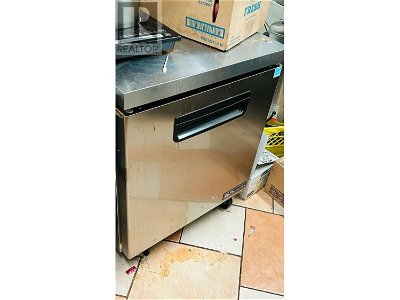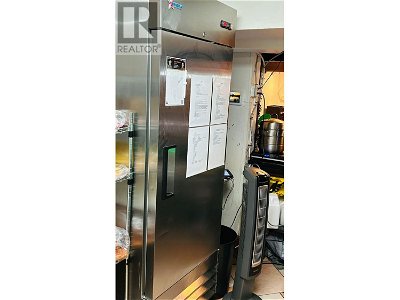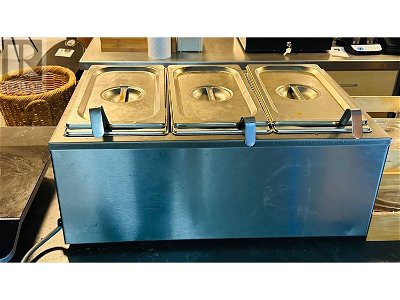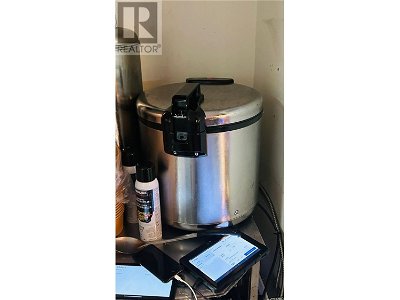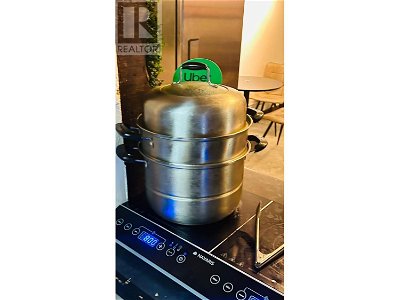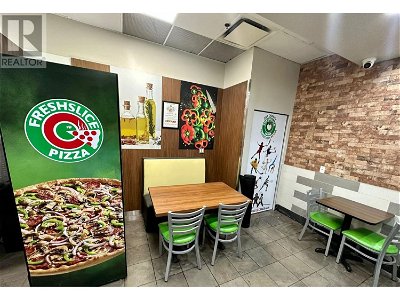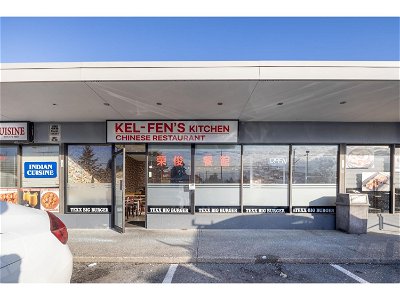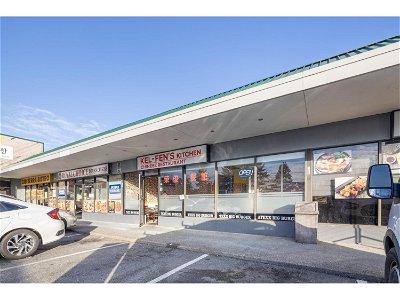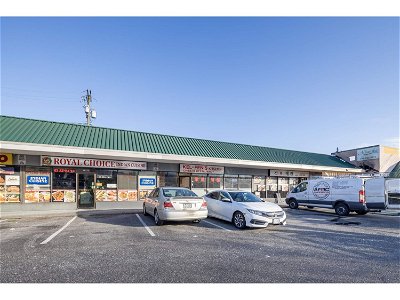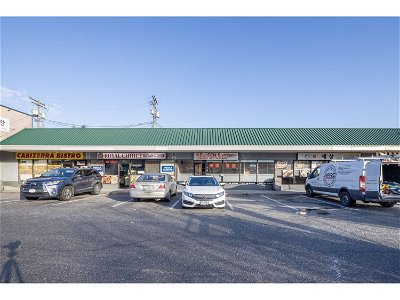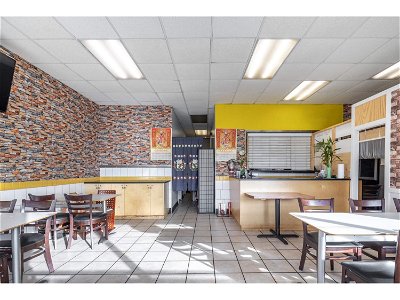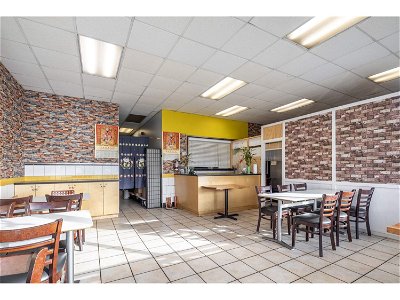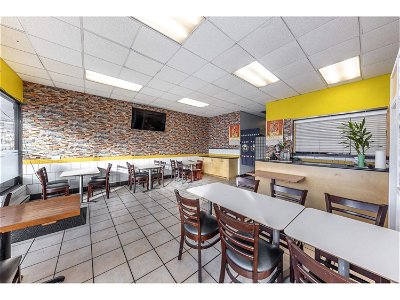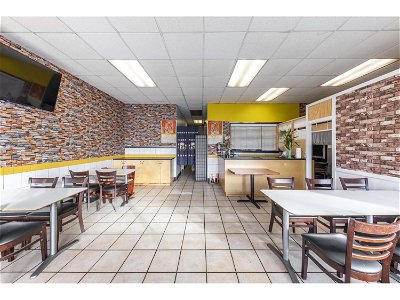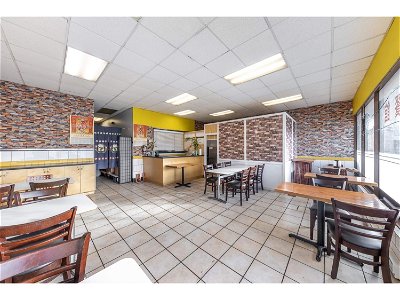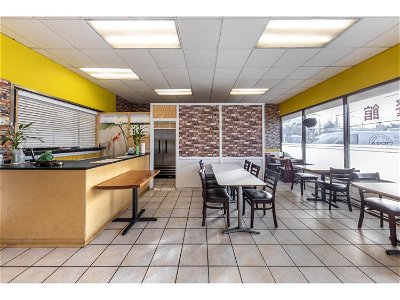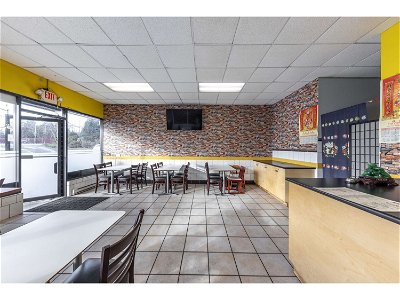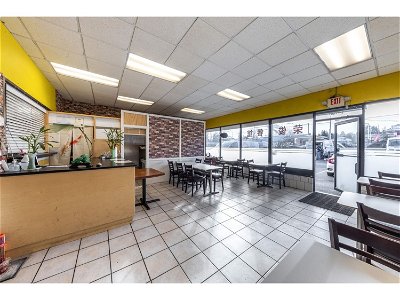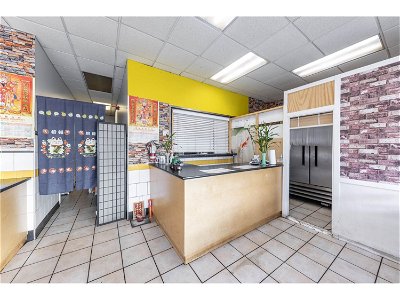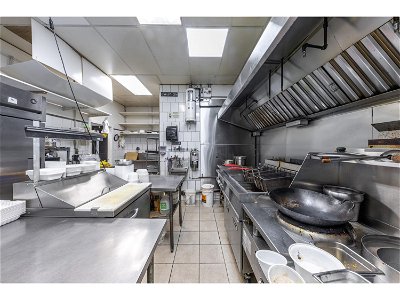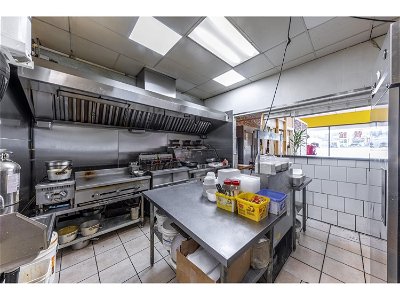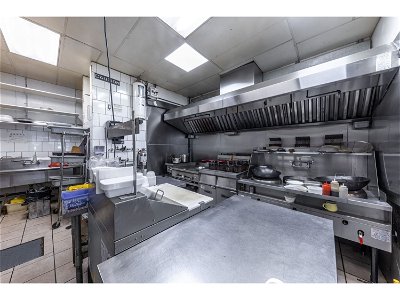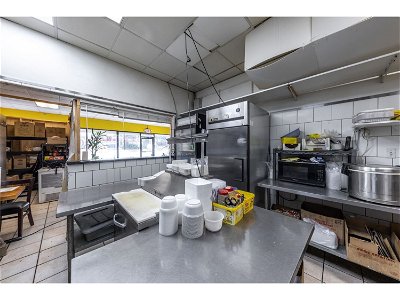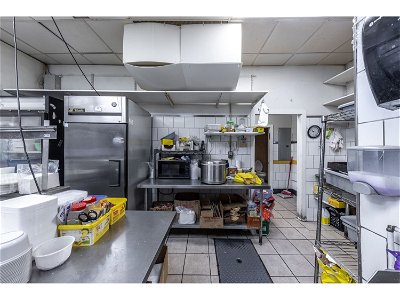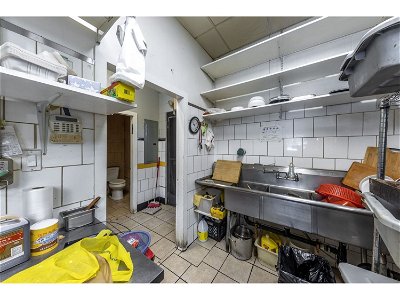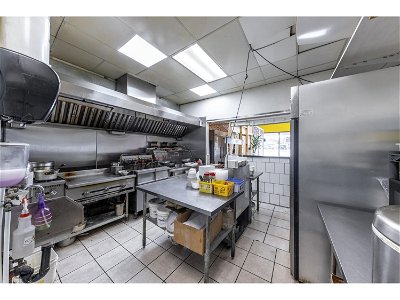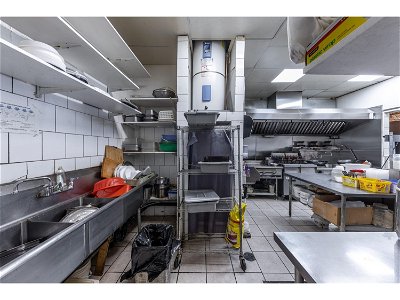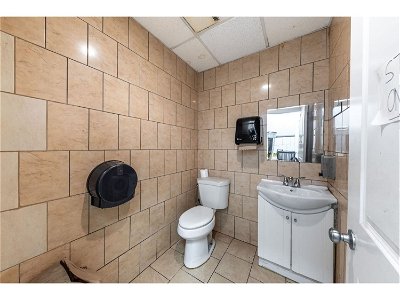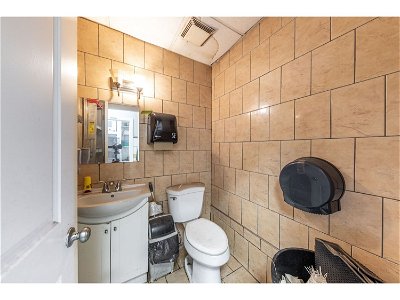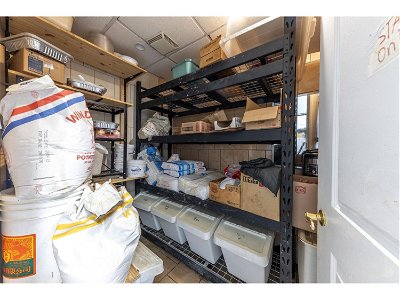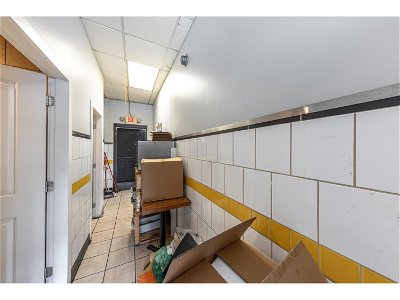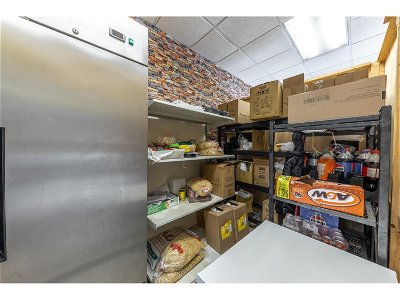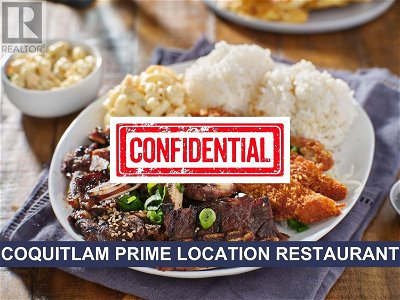Restaurants for sale in BC
Restaurants for Sale in British Columbia
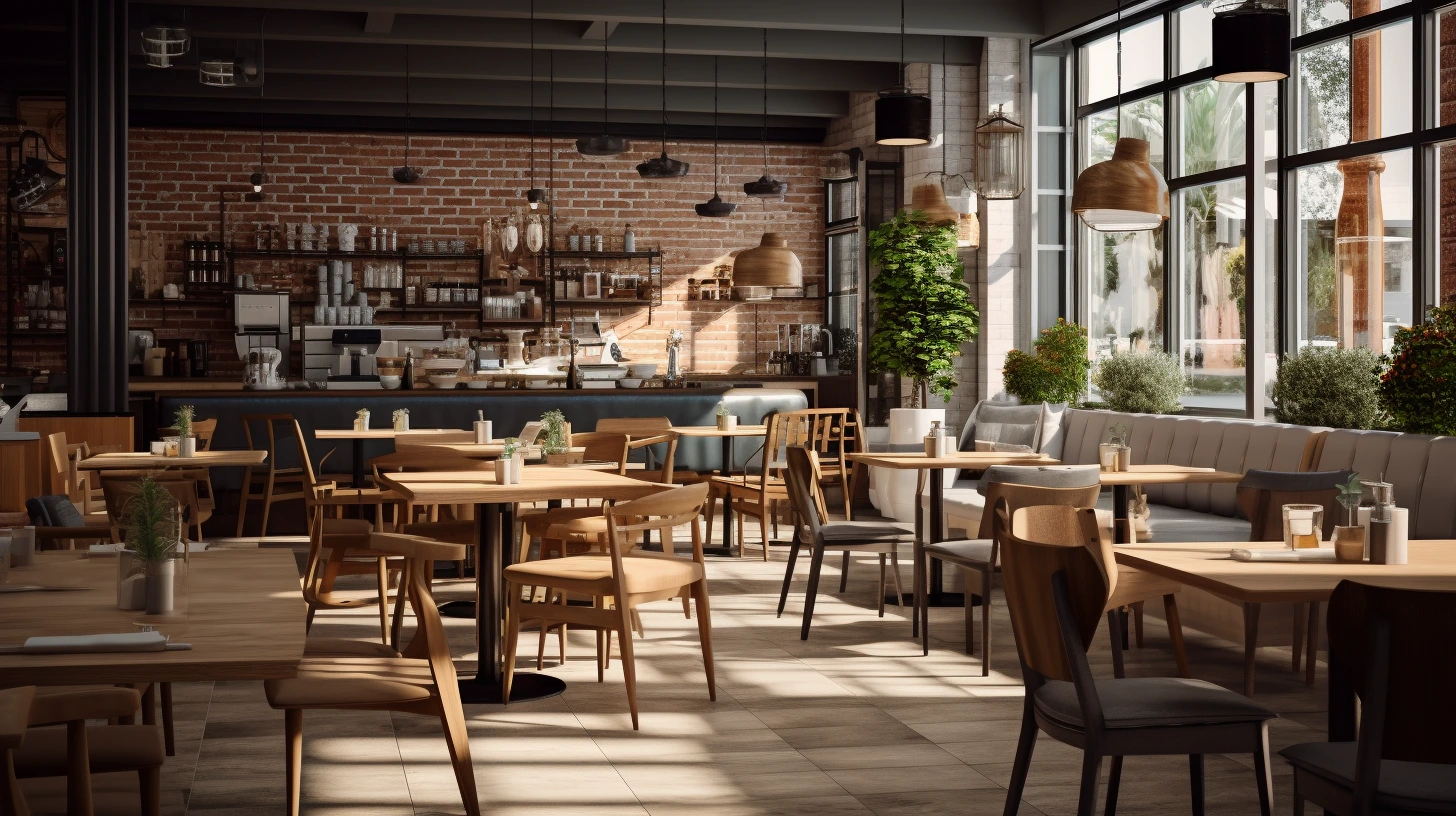
British Columbia (BC) is known for its stunning landscapes, diverse culture, and vibrant culinary scene. The restaurant industry in BC is thriving, offering many opportunities for aspiring entrepreneurs. BC has something to offer, whether you want to purchase a cozy café or a full commercial kitchen serving international cuisine.
Factors to Consider When Buying a Restaurant in BC
1. Location
The success of your restaurant in British Columbia hinges on its location. It's not simply about selecting a spot with a picturesque view, but rather comprehending the intricacies of the surrounding area. Consider the following points:
Proximity to Suppliers: In running a full commercial kitchen, maintaining a constant supply of fresh, local ingredients is crucial. One way to achieve this is by locating the kitchen close to suppliers. This proximity offers several benefits such as reducing transportation costs and ensuring the freshness of ingredients at all times.
Foot Traffic: High-traffic areas can provide a steady flow of customers. Look for locations near shopping centers, entertainment venues, or other attractions that draw crowds.
Competition: The analysis of competitors in the vicinity is crucial. Proximity to similar restaurants can establish a gastronomic hotspot, attracting avid food enthusiasts. However, an excessive number of rivals may oversaturate the market, making it challenging to distinguish oneself.
Parking and Accessibility: It is important to ensure that the restaurant's location is easily accessible by public transport and offers ample parking for customers. Consider every aspect of their experience, from the moment they arrive at the restaurant to when they leave. A convenient location can greatly influence their decision to return.
2. Type of Restaurant
BC's diverse population has various culinary preferences. Understanding the local community's tastes can be instrumental in determining the ideal restaurant type for your establishment. Consider exploring these various options:
Full-Service Restaurants: These are excellent choices for both upscale dining and large-scale operations, as they offer a comprehensive menu. These establishments typically require substantial investments in equipment and personnel but provide a refined and elevated dining experience.
Cafés and Bistros: Smaller commercial kitchens that cater to casual dining. They provide the perfect cozy spots for neighborhoods seeking relaxation and the enjoyment of simple, delicious meals.
Ethnic Restaurants: Reflecting the diverse makeup of BC's multicultural community, ethnic restaurants have gained immense popularity. From delectable Asian fusion to timeless Italian classics and tantalizing Mexican flavors, there is a thriving market for those seeking authentic global tastes.
Fast Food and Franchises: These are quick-service restaurants equipped with commercial kitchen facilities. They are widely favored for their consistency and convenience, appealing to various customer demographics, including families and busy professionals.
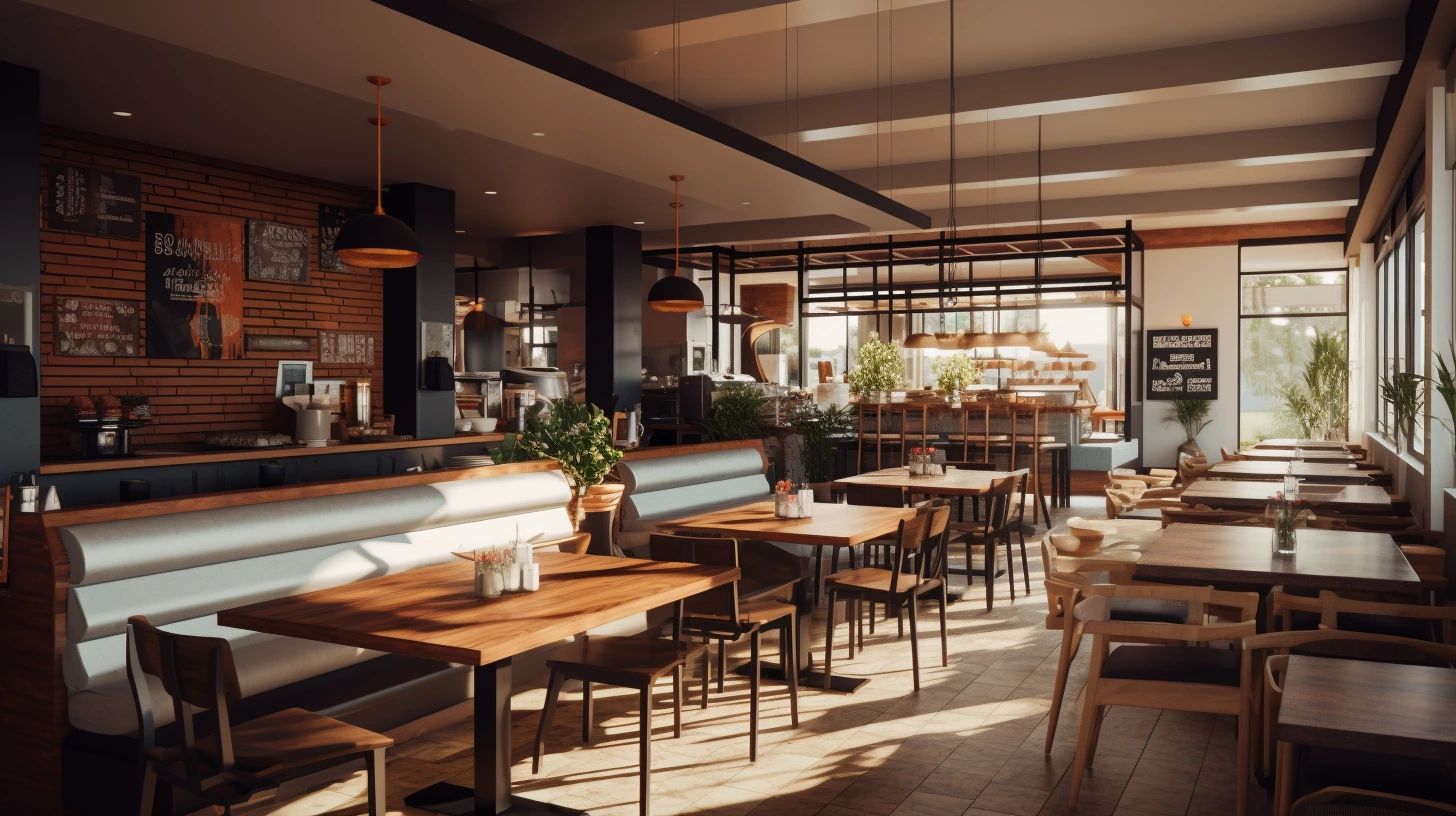
3. Demographics and Target Market
Understanding your target market holds immense significance. It goes beyond simply providing food; it entails crafting an immersive experience that deeply resonates with your valued customers.
Local Preferences: Local residents often wonder about the dining habits of their own community. Do they prioritize healthy choices or lean more towards comforting indulgences? Adapting your menu to cater to local tastes can help you establish a loyal customer base.
Tourist Preferences: Tourists visiting British Columbia's tourist spots may require a different approach, specifically catering to their international tastes. By offering local flavors infused with a global twist, your restaurant can become an irresistible destination for travelers.
Local Businesses: Are there any local businesses nearby that might benefit from catering or become a regular lunch spot? Establishing relationships with neighboring companies can generate a consistent weekday customer base.
Considering these factors, you can align your restaurant's location, type, and target market with the unique characteristics and demands of British Columbia's vibrant dining scene. The aim is to create an inviting atmosphere where individuals seek to be, offering delectable cuisine that satisfies their cravings while providing a personalized and thrilling experience.
Popular Areas for Restaurant Business in British Columbia
British Columbia offers diverse locations and opportunities for opening different types of restaurants.
Major Cities:
Vancouver: A bustling city with opportunities for upscale dining, trendy cafes and bistros, and ethnic cuisine.
Victoria: Known for harbor-side dining, tea rooms, cafés, and farm-to-table concepts.
Surrey: Fast-growing population suitable for traditional and innovative dining.
Resort Towns:
Emerging Areas:
These areas represent just a glimpse of the opportunities available across British Columbia. Each location offers unique characteristics and market dynamics, making it essential to carefully consider your restaurant's concept, target audience, and competitive landscape.
Whether you're drawn to Vancouver's urban energy or Surrey's suburban appeal, British Columbia's restaurant market offers many opportunities to pursue your culinary dreams.
Types of Restaurants
British Columbia's cosmopolitan cities and abundance of fresh local ingredients make it suitable for diverse culinary experiences, including:
Upscale dining establishments with full commercial kitchens
Casual cafes, bistros, and ethnic eateries
Fast food franchises and quick service restaurants
Specialty restaurants showcasing BC's agricultural bounty
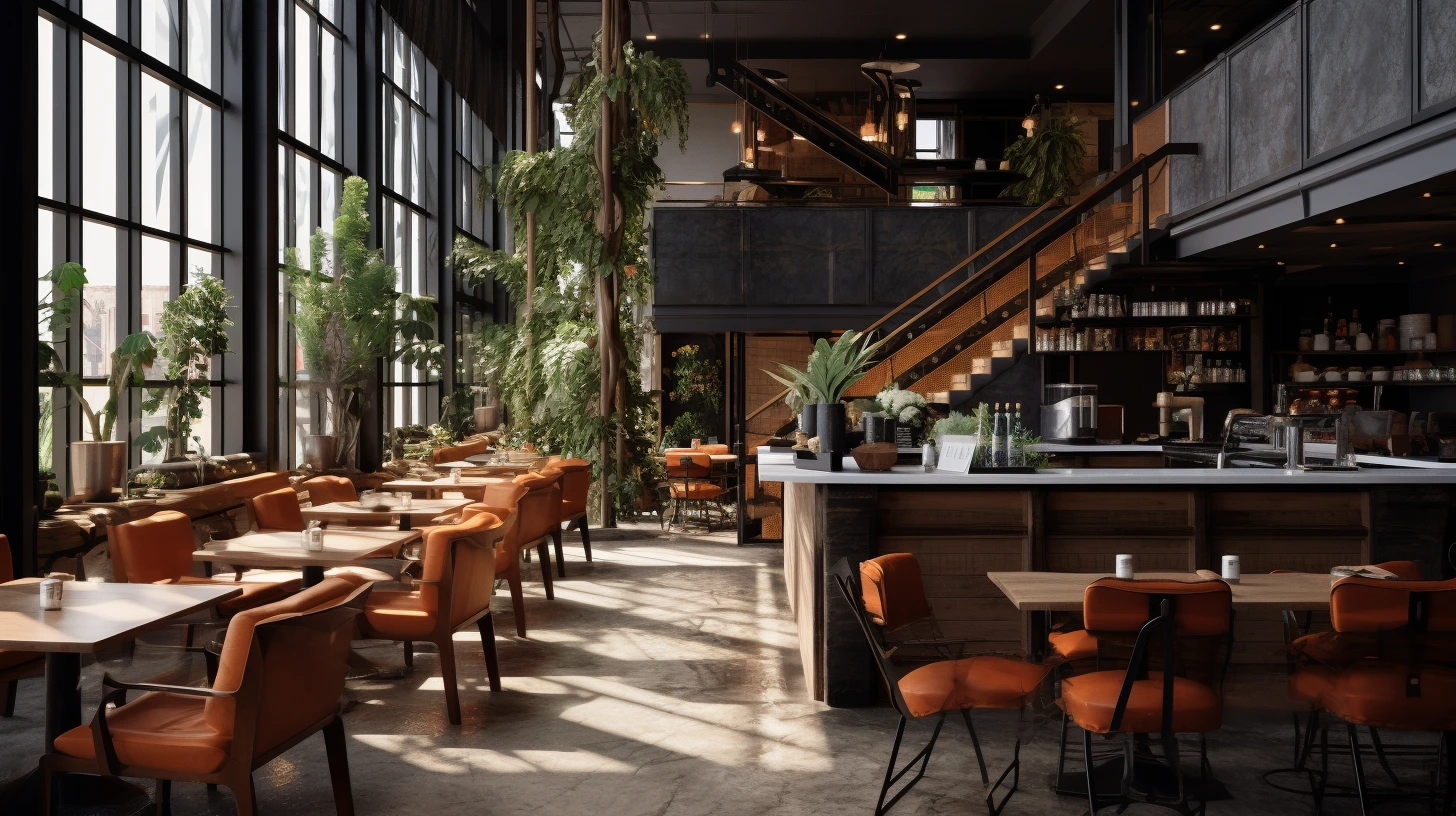
Steps to Purchase a Restaurant in BC
Buying a restaurant in British Columbia (BC) is a complex process that requires careful planning, research, and execution. When considering locations, pay attention to the thriving community of Langley. Check out these restaurants for sale in Langley, BC.
Finding the Right Restaurant
The first step is finding the right restaurant that fits your vision and budget. Here's how you can approach it:
Online Listings
Websites: Websites like FindBusinesses4Sale specialize in businesses like restaurants for sale, including those with full commercial kitchens.
Business Broker Websites: Brokers specializing in businesses for sale can provide insights into profitable opportunities.
Social Media and Forums: Sometimes, owners looking to sell might post on local business forums or social media groups.
Real Estate Agents
Specialized Agents: Look for real estate agents who specialize in commercial properties and have experience in the restaurant industry.
Local Knowledge: Agents with local knowledge can provide insights into neighborhood trends, zoning laws, and potential growth.
Networking and Word of Mouth
Industry Contacts: If you're already in the restaurant business, your contacts might know of opportunities.
Local Business Groups: Joining local business associations can provide networking opportunities.
Attend Trade Shows: Restaurant and hospitality trade shows often provide leads and connections.
The Due Diligence Process
The due diligence process is a critical phase in purchasing a restaurant in British Columbia. It's not just about looking at the numbers; it's about understanding the story behind those numbers and the legalities that govern the business. Here's a detailed breakdown:
Evaluating Financial Statements
Financial statements are the backbone of any business, and a restaurant is no exception. You must delve into the following:
Profit and Loss Statements: Go beyond the surface and analyze revenue streams, fixed and variable expenses, and net income. Look for trends and inconsistencies that indicate underlying issues.
Balance Sheets: Assess the assets and liabilities, including any outstanding debts or liens on the commercial property. Understand the liquidity and financial stability of the business.
Tax Returns: Review at least three years of tax returns. This isn't just about verifying reported income; it's about understanding the tax strategy and compliance with Canadian tax laws.
Lease Review
The lease is more than a rental agreement; it's a strategic business document. Pay attention to:
Lease Terms: Understand the length of the lease, renewal options, and any restrictions that might limit your ability to modify the commercial property.
Rent Increases: Scheduled rent increases aren't just a future expense but a negotiation tool. Use them to understand the landlord's expectations and to negotiate favorable terms.
- Transfer Clauses: Ensure the lease can be transferred to a new owner without undue restrictions or penalties. This is about preserving the value of your investment.
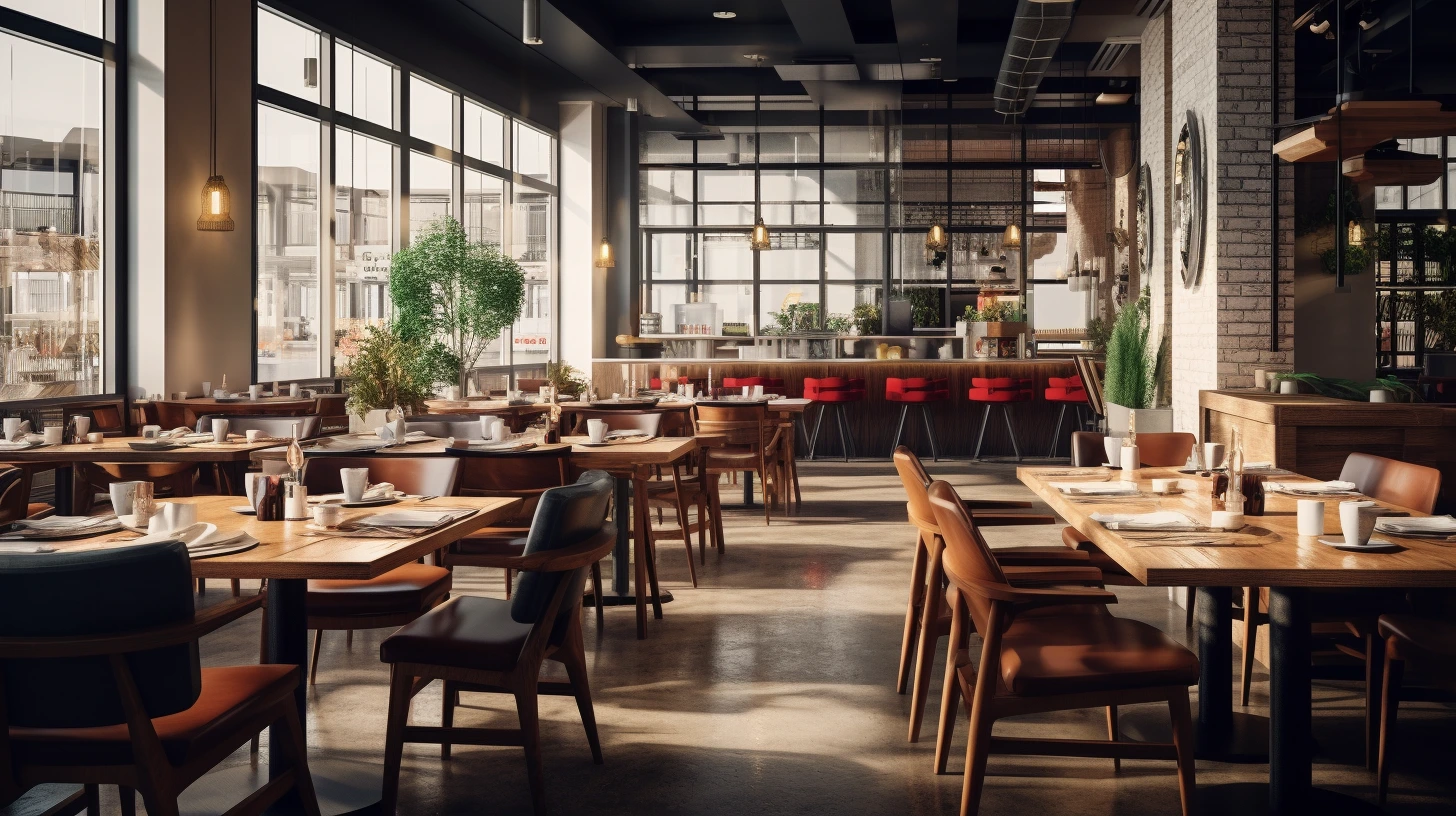
Licenses and Permits
Compliance with local regulations isn't just a legal requirement; it's a mark of professionalism. Ensure that:
Food Handling Permits: The restaurant complies with local food safety regulations. This isn't just about passing inspections; it's about building a reputation for quality.
Liquor Licenses: If applicable, understand the transfer process for liquor licenses in BC. This can be a complex process; understanding it upfront can save time and frustration later.
Zoning and Land Use Permits: Verify that the commercial property is zoned for restaurant use. Zoning laws can change, and understanding the local landscape can protect your investment.
This table, “Restaurant and Food Service Inspection in Canada, " overviews the organizations involved in restaurant and food service inspection in Canada, their roles, and how to report concerns. Potential buyers need to understand these aspects when considering purchasing businesses for sale in the food industry.
Section | Details |
Provincial Governments | Provincial governments, municipalities, and regional health authorities conduct restaurant and food service inspections across Canada to verify that safe food-handling practices are followed. |
Public Health Departments | Contact information for provincial and territorial public health departments is provided for reporting concerns about restaurant food. |
First Nations and Inuit Health | The First Nations and Inuit Health Branch of Health Canada supports delivering public health and health promotion services on-reserve and in Inuit communities. |
CFIA's Role | The Canadian Food Inspection Agency (CFIA) protects consumers from deceptive restaurant practices. Any claim concerning restaurant food offered for sale must be true and accurate. Contact CFIA's Retail Food Program for issues. |
The table “Food Business Activities and Licensing in Canada” provides a comprehensive overview of the various food business activities and the corresponding licensing requirements under the SFCR. Understanding these regulations is vital for potential buyers considering purchasing businesses for sale in the food industry.
Activity Type | Licensing Requirement |
Manufacturing, Processing, Treating | Required for interprovincial and international trade. Activities include making food, treating food to preserve it, packaging food, and labeling food. |
Storing Food | Required for storing meat products and food that contains meat as an ingredient. |
Importing Food | Required for importing food into Canada. |
Exporting Food | Required for exporting food that requires an export certificate. |
Slaughtering Food Animals | Required for slaughtering food animals where the meat product is sent or conveyed from one province to another or to another country. |
Conveying Between Provinces | Required for sending or conveying food from one province to another. |
Selling Food to Consumers | Not required for selling food directly to consumers at a retail establishment, including restaurants, grocery stores, and farmers' markets. |
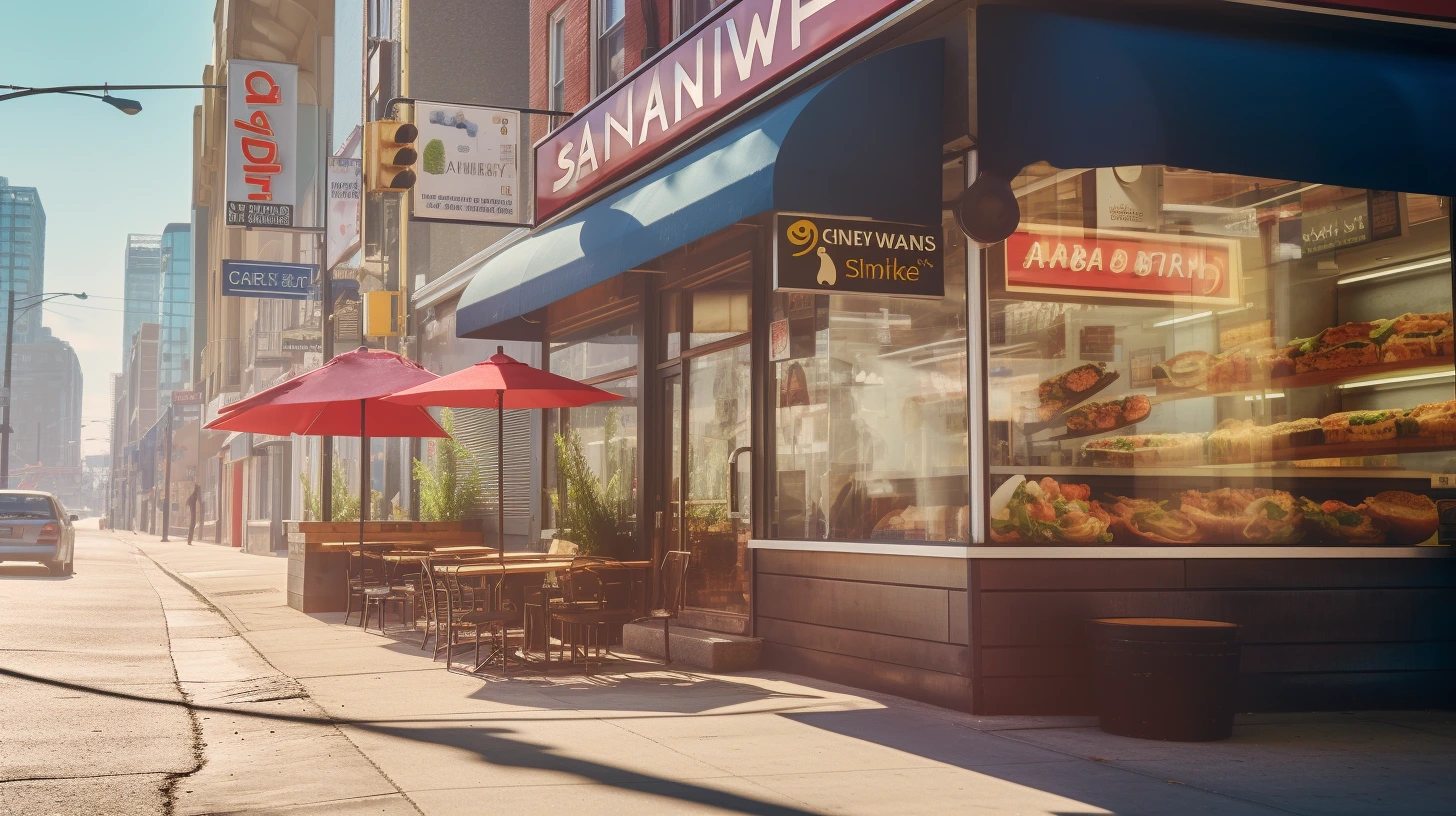
Making an Offer and Negotiating Terms
Making an offer is more than just naming a price; it's about structuring a deal that aligns with your business goals and risk tolerance. Here's how to approach it:
Letter of Intent (LOI): Start with a non-binding LOI that outlines the price and terms. This sets the stage for negotiations without locking you into a commitment.
Negotiate Terms: Work with legal and financial advisors who understand the BC restaurant market. They can help you negotiate favorable terms that reflect the true value of the business and the commercial property.
Contingencies: Include financing, inspections, and license transfer contingencies. These aren't just escape clauses; they're tools to ensure you understand what you're buying and paying a fair price.
In commercial real estate, due diligence is more than a phase in the buying process; it's a philosophy. It's about understanding the business, the market, and the legal landscape and making informed decisions that align with your goals and values. It's about buying a restaurant and a sustainable business that can thrive in British Columbia's vibrant and competitive market.
Closing the Deal and Onboarding
Purchasing a restaurant in BC is a multifaceted process that requires careful consideration at every step. From finding the right commercial property to conducting thorough due diligence and negotiating favorable terms, each stage requires attention to detail and expert guidance.
Final Inspections: Conduct final inspections, including the full commercial kitchen equipment.
Closing Documents: Work with a lawyer to ensure all closing documents are in order.
Transition Plan: If the previous owner is involved, outline their responsibilities.
Staff Onboarding: Communicate with existing staff and outline any changes or new expectations.
Financing Options for Purchasing a Restaurant in BC
Buying a restaurant in British Columbia (BC) isn't just a business decision; it's the realization of a lifelong dream for many aspiring restaurateurs. However, turning this dream into reality requires careful consideration of financing options.
The process can be intricate, demanding both knowledge and strategic thinking and sometimes even calling for innovative approaches. Let's delve deeper into the available avenues for financing:
Traditional Bank Loans
Traditional Bank Loans are commonly perceived as the conventional approach, but they hold signficant advantages beyond initial appearances.
Interest Rates: These numbers hold more significance than meets the eye. They serve as a reflection of the bank's confidence in your business, indicating their assessment of creditworthiness and taking into account the broader economic landscape in BC.
Loan terms vary from short-term bridge financing to long-term commitments, with durations that can extend up to 10 years or more. It is essential to comprehend and choose the appropriate term for your business requirements.
Banks often require loan collateral, including the commercial property or other assets. However, this requirement serves a greater purpose beyond loan security. It is vital to understand the value of your help and effectively leverage them for strategic purposes.
The application process is rigorous and demanding. It requires the submission of detailed business plans, financial statements, and projections. However, it presents an opportunity to refine your business strategy and align it with your financial goals.
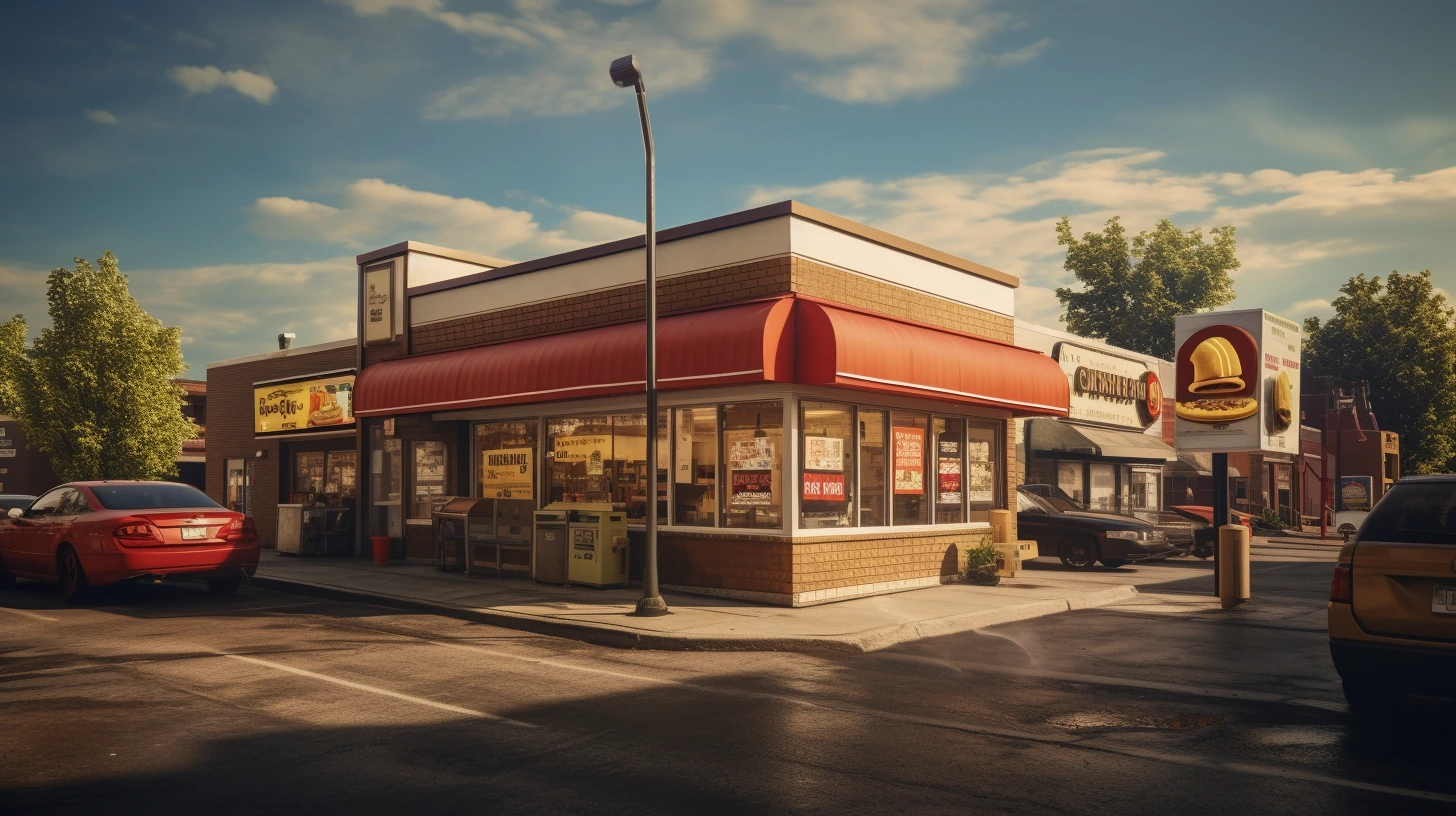
Small Business Loans and Grants
Small Business Loans and Grants encompass more than mere financing; they embody a resounding vote of confidence from both the community and the government.
Government Programs in BC provide opportunities for local businesses through low-interest loans and grants. These programs, offered by both federal and provincial agencies, not only provide financial assistance but also foster partnerships with the government. The aim is to support and uplift the local business community.
Local businesses receive support from community lenders, which are local community organizations. This support goes beyond financial assistance as it involves cultivating relationships and contributing to the local economy.
Eligibility criteria encompass specific factors such as business size, location, or industry focus. Although they may appear restrictive, they also presents an opportunity to align your business with broader community goals.
Many programs provide assistance for preparing applications. This support extends beyond mere paperwork; it aims to comprehensively understand your business and effectively present it in the most favorable light.
Private Investors and Partnering
Private investors and partnering offer alternative financing options that are more flexible and customized according to your specific needs.
Angel Investors: individuals who invest personal funds in exchange for equity or convertible debt bring more than just financial support to your restaurant. They also offer invaluable experience, mentorship, and a wide network that can greatly contribute to the success of your establishment.
Venture Capital: VC firms have a keen interest in investing in promising restaurant concepts, particularly those with potential for scaling or franchising. It goes beyond providing capital; it involves strategic growth and brand development.
Partnerships: Collaborating with another entrepreneur or investor can provide the necessary capital for your restaurant. These partnerships may involve support from family or friends who share your vision. Moreover, they entail aligning goals, managing risks, and cultivating a cohesive team that drives the success of your establishment.
Negotiation: Terms with private investors can often be more flexible and tailored to the business's specific needs. This isn't just about the deal; it's about building a relationship that aligns with your business goals and values.
Financing a restaurant in British Columbia can be a complex endeavor. It entails more than just crunching numbers; it requires a deep understanding of the intricate relationships, strategic planning, and growth opportunities that those numbers represent. Successfully financing your restaurant venture means aligning your financial strategy with your business goals, community values, and personal aspirations.
Moreover, it's about constructing not just any ordinary eatery but building a sustainable business that can thrive amidst the vibrancy and competitiveness of British Columbia's market. Whether you seek support through conventional loans, governmental assistance, or private investments, securing the right financing is instrumental in transforming your dream into reality.
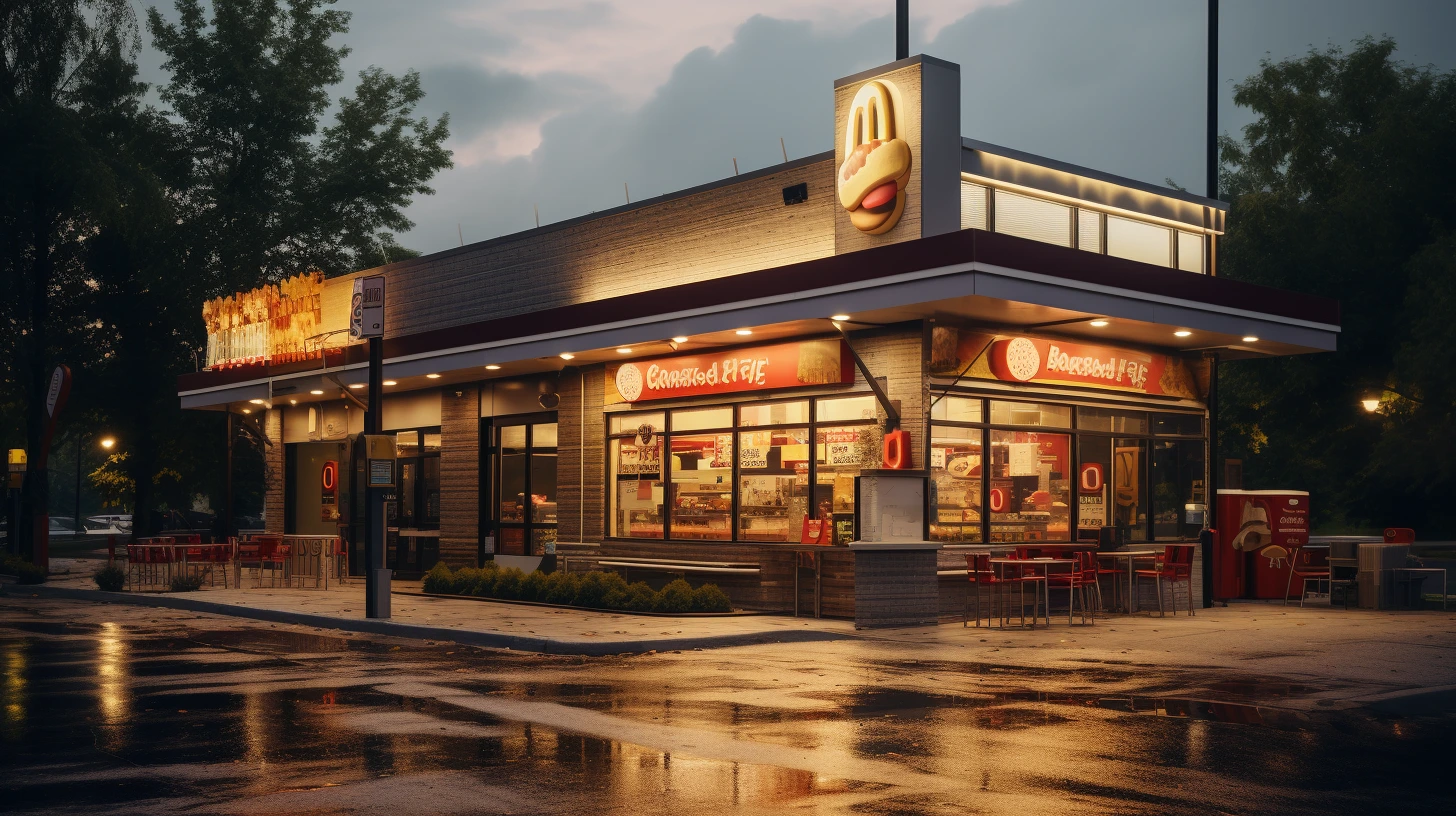
Tips for Success in the BC Restaurant Industry
Creating a flourishing restaurant business in British Columbia's vibrant culinary landscape requires strategic planning and understanding of the local market. Here are some key tips:
Embrace Local Ingredients and Cuisine
Source fresh ingredients from nearby farms and fisheries.
Build relationships with local suppliers for seasonal products.
Incorporate local flavors and dishes into your menu.
Use a full commercial kitchen to prepare regional dishes efficiently.
Leverage Tourism Opportunities
Understand tourist demographics and cater offerings to them.
Partner with hotels, travel agencies, and local events.
Create special packages and discounts for tourists.
Focus on Marketing and Social Media
Engage a professional photographer for high-quality food images.
Share behind-the-scenes stories and customer testimonials on social media.
Promote new menu items and offers on Instagram and Facebook.
Invest in an SEO-optimized website with online reservations.
Case Studies: Successful Restaurant Purchases in BC
The restaurant industry in British Columbia (BC) is filled with inspiring success stories. Here are three case studies that illustrate different paths to success, each offering unique insights and lessons that can be applied to your restaurant business venture.
Example 1: A Small Family-Owned Bistro
A family in Victoria, BC, purchased a small commercial property with the dream of opening a bistro serving local cuisine. They focused on sourcing ingredients from nearby farms and fisheries, turning their full commercial kitchen into a hub of creativity and sustainability.
The family worked closely with local suppliers, even visiting farms to understand the products better. They also engaged with the community through social media, sharing their journey from renovation to opening day. By embracing local culture and building relationships, they created a loyal customer base that appreciated their commitment to quality and community.
Insider Tip: Building strong relationships with local suppliers can lead to exclusive access to seasonal products, enhancing your menu's uniqueness. Engaging with the community through social media and local events can create a strong connection and loyal customer base.
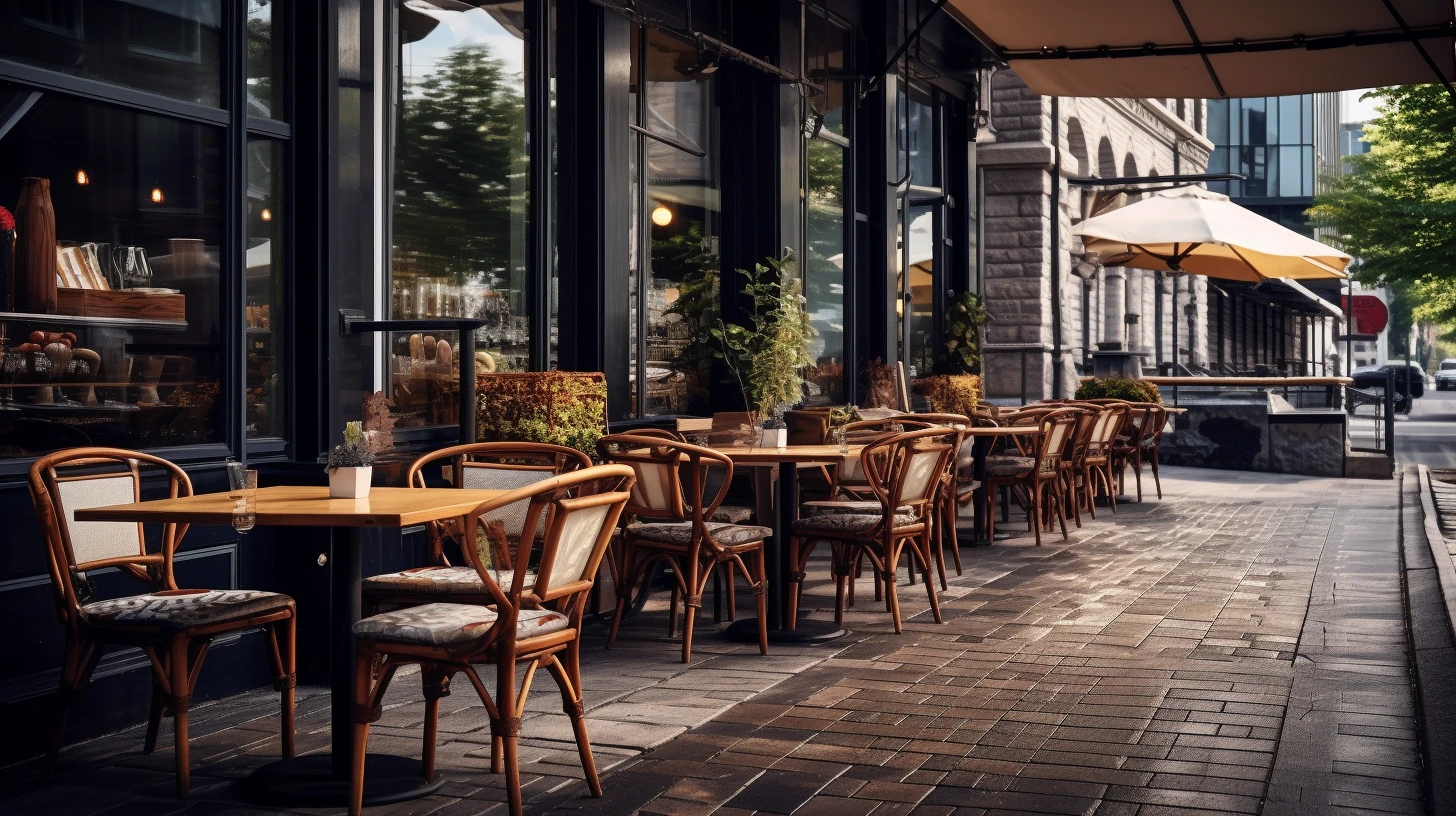
Example 2: Expanding a Successful Franchise
A business entrepreneur in Vancouver saw an opportunity to expand a popular fast-food franchise. They identified a commercial property in a high-traffic area, perfect for attracting both locals and tourists.
The key to their success was understanding the local market and adapting the franchise's offerings to suit local tastes. They also invested in a state-of-the-art commercial kitchen, ensuring efficiency and consistency across the menu.
Collaborating with the franchise's marketing team, they implemented targeted advertising campaigns and leveraged the brand's existing social media presence to create buzz. The result was a successful expansion that maintained the franchise's standards while catering to the unique tastes of the Vancouver market.
Insider Tip: Understanding the local market and adapting a franchise's offerings to suit local tastes can lead to success. Investing in a state-of-the-art commercial kitchen ensures efficiency and consistency, key factors in maintaining a franchise's reputation.
Example 3: Revamping a Struggling Eatery
A seasoned restaurateur in Whistler purchased a struggling eatery with the vision of turning it around. They recognized the potential in the location and saw an opportunity to revamp the menu and ambiance.
They renovated the commercial property, creating a warm and inviting atmosphere. They also revamped the menu, focusing on local ingredients and dishes that resonated with locals and tourists.
They turned the eatery into a local hotspot by leveraging their existing network and engaging with the community through local events and social media. Their commitment to quality and community engagement transformed a struggling business into a thriving success.
Insider Tip: A clear vision and understanding of the local market can make a struggling eatery successful. Renovating the commercial property and revamping the menu to resonate with the local community can create a fresh and appealing dining experience.
Conclusion: Pursuing Your Dream in the BC Restaurant Scene
The restaurant industry in British Columbia offers diverse opportunities for aspiring business owners. Whether it's a small family-owned bistro, expanding a successful franchise, or revamping a struggling eatery, success is attainable with the right approach. If you want to explore beyond traditional markets, consider expanding your search to include emerging areas like Port Coquitlam. Here are some restaurants for sale in Port Coquitlam, BC, to consider, providing a fresh perspective and untapped potential for your next culinary venture. Mission also offers unique opportunities for aspiring restaurateurs. Explore restaurants for sale in Mission, BC, to find the perfect fit.
Understanding the local market, embracing local ingredients and culture, leveraging tourism opportunities, and building a strong marketing and social media presence are key factors in achieving success. Investing in a full commercial kitchen, choosing the right commercial properties, and engaging with the community can create a unique and thriving restaurant business.
Pursuing your dream in the BC restaurant scene requires passion, creativity, and strategic planning. By learning from successful examples and applying expert insights, you can navigate the complexities of the commercial property landscape and create a restaurant business that resonates with the vibrant and diverse communities of British Columbia.
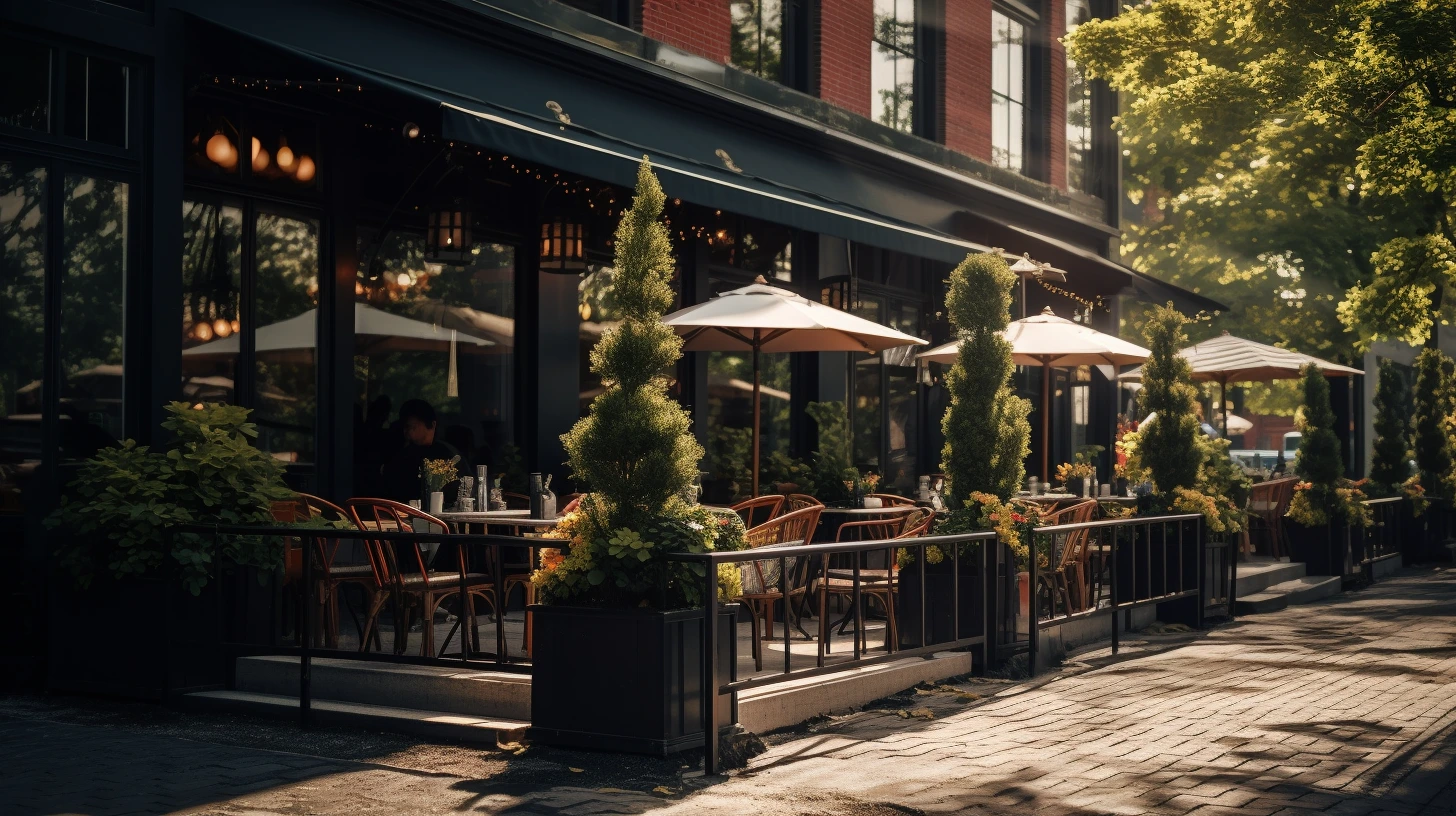
Join FindBusinesses4Sale Today!
Are you ready to make your dream of owning a restaurant a reality? Look no further than FindBusinesses4Sale, Canada's premier marketplace for buying and selling businesses. Here's why you should join us:
One-Stop Shop: No need to waste time searching multiple websites. We have the most comprehensive list of businesses and commercial properties for sale in one place.
Free Registration: Joining our platform is free—no hidden charges or fees.
Easy to Use: Our platform is user-friendly and easy to navigate. You can easily search for the type of restaurant you're interested in, in your desired location.
Instant Alerts: Receive a text message alert when a match for you or a message is logged in our system. Never miss an opportunity!
Confidentiality: We understand the importance of confidentiality in business transactions. We ensure that all interactions on our platform are confidential and secure.
To get started, visit our Buyer Registration page and complete the form. Once you've created your account, you can start browsing our listings to find the perfect restaurant for sale in Ontario.
Buying a restaurant is a significant investment, and it's important to research and understand the market. With FindBusinesses4Sale, you have all the resources you need at your fingertips. So why wait? Join us today and take the first step toward owning your dream restaurant!
FAQ
How much does it cost to open a restaurant in Vancouver?
The cost of starting a restaurant in Canada typically ranges from $300,000 to $500,000, depending on whether you rent or buy real estate for your business. Learn more.
What types of restaurants are commonly for sale in British Columbia?
In British Columbia, a wide range of restaurants is commonly available for sale. These, include cafes, fast food establishments, casual dining spots, and fine dining venues. They offer diverse culinary experiences showcasing both Canadian and international cuisines.
For those interested in a specific cuisine, such as Japanese, you can find specialized Japanese restaurants for sale in BC.
How do I find restaurants for sale in British Columbia?
To find restaurants for sale in British Columbia, you can search online platforms like FindBusinesses4Sale. Also, you can consult with local real estate agents and brokers specializing in commercial property transactions.
What factors should I consider when purchasing a restaurant in BC?
When purchasing a restaurant in BC, it is essential to consider various factors. These include the location, competition, licensing and permits, the existing reputation of the establishment, and financial viability. Evaluating start-up costs, potential revenue, and ongoing expenses is important.
Can I purchase a franchise restaurant in British Columbia? If so, what is decision.
Are there any financing options for purchasing a restaurant in British Columbia?
Yes, financing options are available for purchasing a restaurant in British Columbia. Potential buyers have several avenues to explore. They can consider traditional bank loans, government-backed small business loans, private lending, or, in certain cases, seller financing arrangements to secure funding for their restaurant purchase.
How do I determine the value of a restaurant for sale in BC?
When determining the value of a restaurant for sale in British Columbia, it is important to consider several factors. These include the restaurant's location, financial performance, goodwill, and the value of its assets. Additionally, seeking advice from a professional business appraiser or a commercial real estate agent with experience in evaluating restaurants within the region is recommended.
What are some tips for successfully negotiating the purchase of a restaurant in British Columbia?
When considering the purchase of a restaurant in British Columbia, it is crucial to thoroughly evaluation of its financial aspects. This includes assessing profit margins and potential growth. Maple Ridge offers a blend of urban and rural dining experiences. Discover restaurants for sale in Maple Ridge, BC that align with your vision.
It is also advisable to seek guidance from local professionals like real estate agents or business brokers who can provide insights into market trends and help determine a fair valuation for the restaurant. Lastly, ensure that all necessary licenses and permits are in order or can be easily transferred to streamline the acquisition process.
Are there any legal considerations when purchasing a restaurant in British Columbia?
Legal considerations arise when purchasing a restaurant in British Columbia. These include acquiring the necessary licenses and permits, ensuring compliance with local health and safety regulations, and reviewing lease agreements or property ownership documentation.
How to find the best deals on properties for Restaurants in BC?
Discovering the best deals on Restaurants in BC requires thorough research. Take into account factors such as location, size, amenities, and future growth potential. Explore the three most popular offers:
Turnkey Rolled Ice Cream Trailer, Pizza Restaurant at 11092 CONFIDENTIAL and Fast Food Restaurant at 3779 SEXSMITH .
What is the average price of Restaurants in BC?
The average price of Restaurants in BC is influenced by various factors. On average, prices range from $412,428. However, conducting a comprehensive market analysis is essential to grasp specific pricing trends in your desired area.
Where can you find information about Restaurants in BC?
Find comprehensive information about Restaurants in BC on Find Businesses 4 Sale! Explore our catalog of offers, and if you have any questions, feel free to contact us; we're here to help! Meanwhile, consider checking out the three newest listings:
Turnkey Rolled Ice Cream Trailer, Pizza Restaurant at 11092 CONFIDENTIAL and Fast Food Restaurant at 3779 SEXSMITH . .

 Save Search
Save Search